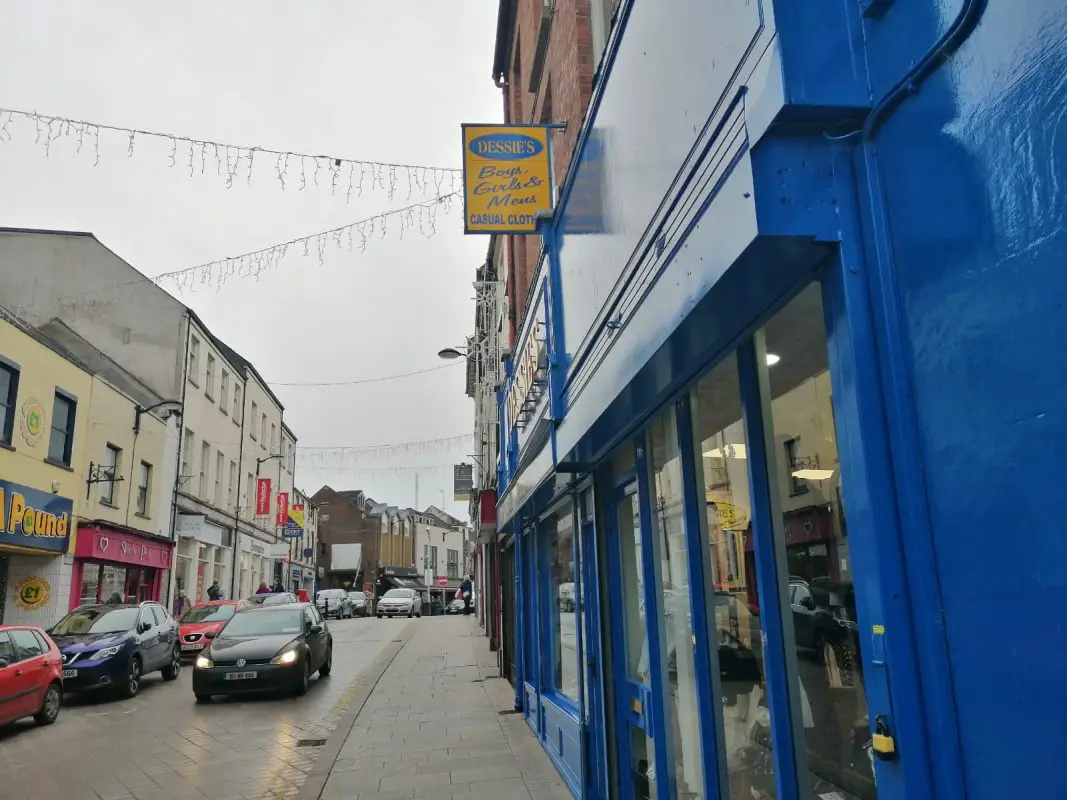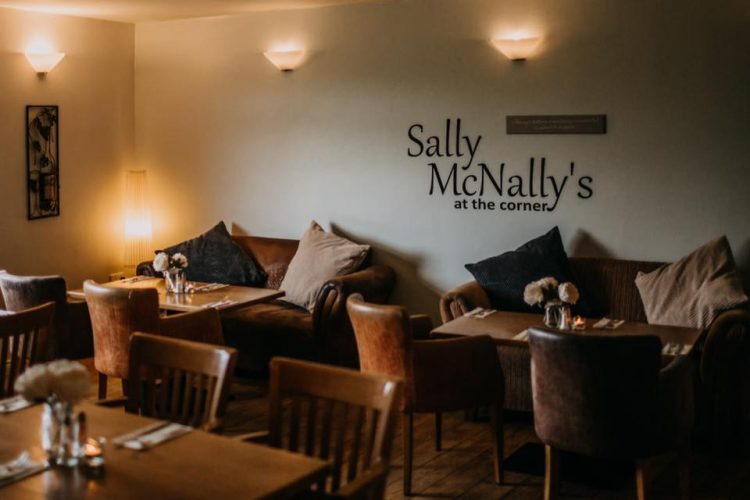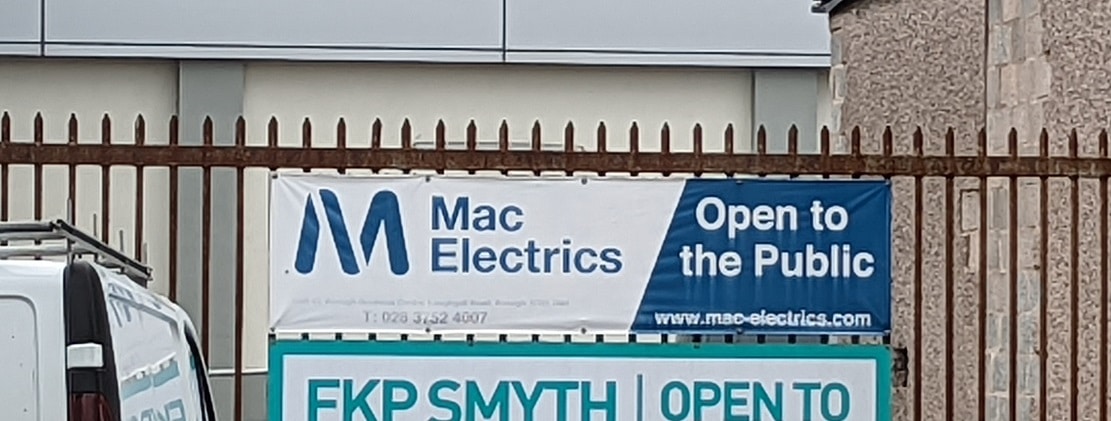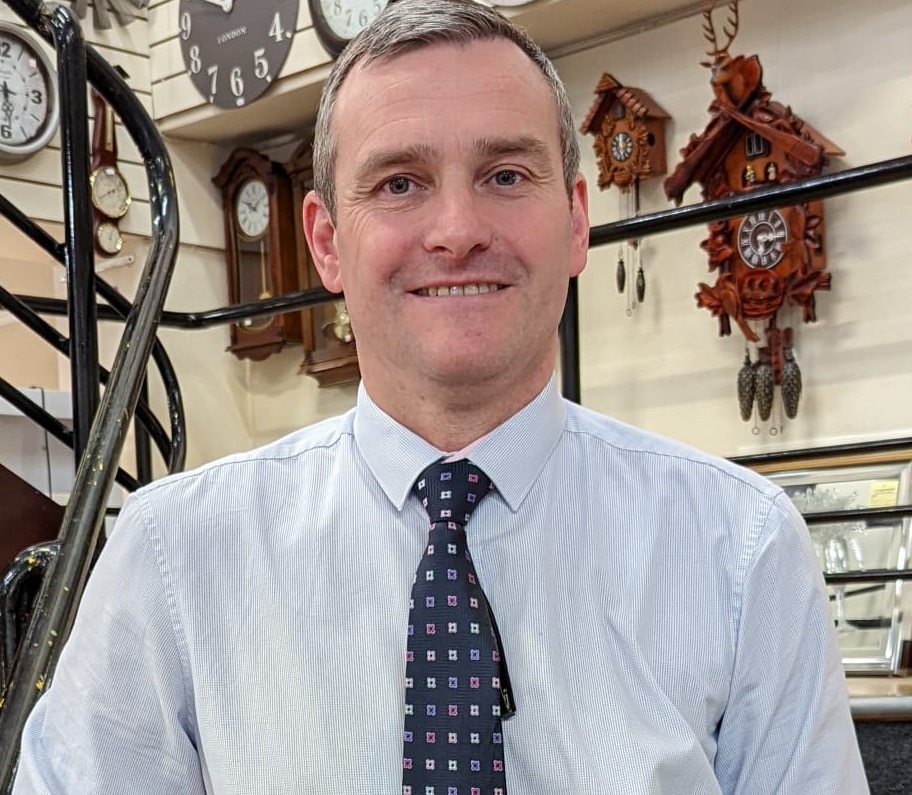
From skyrocketing energy bills, food costs and product shortages, to seemingly endless price rises at the pumps, it can be safely said that everybody in Northern Ireland is feeling the pinch of the ongoing cost-of-living crisis.
Concerns have been raised about the viability of many local businesses as the crisis continues to tighten its grip, as it becomes more and more difficult for businesses to source their products and ingredients, and more and more expensive to keep the lights on.
With £650 cost-of-living payments due to roll out this Summer, some feel that more needs to be done for businesses.
Armagh I spoke to four local businesses in the wider Armagh area, three of which make their home in Armagh City, about how they have been coping with the crisis and what their thoughts are for the future.
The results from the high street have produced a mixed response, with businesses managing similar difficulties in different ways.

Sally McNally’s, located just outside Portadown
One local business which is struggling is Sally McNally’s, a restaurant and bar located outside Portadown.
The restaurant’s accounts manager said: “We have had to re-cost our menu four or five times since January to accommodate the rising prices of ingredients and utilities.
“Our electric bill alone was almost £5000 last quarter which is more than double the previous bill. Our gas has also doubled in price.”

Mac Electrics store in Armagh
Phillip McBirney, Director of Mac Electrics, a company which operates an electrical wholesale suppliers at Armagh Business Park on the Loughgall Road, says that his business had reacted positively to the pandemic, with people starting more home improvement projects as a result of spending more time in the house.
However, the rise in cost of living has meant that footfall has diminished.
“From the tail end of last year when the cost of living started to ramp up quickly we have found from the end of first quarter that footfall has slowed down.
“People probably aren’t spending as much and maybe don’t have as much disposable income”, he said.
“We’ve found the last two months in the shop have been much quieter. Footfall is maybe down 30 or 40%.
“You still have your main tradesmen but you would have had people down maybe doing up a kitchen or just renovating their house. That’s really slowed down. The tradesman’s still out there and still busy.”
The slow down hasn’t been limited to customer footfall. Product acquisition has also been a difficulty.
He says: “We would have found that stuff we were getting delivered next day or even the same day is now taking a week, and that’s right across the board.
“Deliveries and access to products hasn’t been the same as what it had been. You do see people not calling down as much, maybe more phone and email enquiries, probably due to diesel costs.”

Philip Hawthorne, owner of TG Hawthorne, Armagh
TG Hawthorne, a furniture store on Scotch Street in Armagh City centre, has similar concerns regarding customer footfall, but the owner, Philip Hawthorne, says that the customers that are coming in are still spending money.
“Customers are coming in and buying better stuff. They’re actually spending more money but there are less customers overall.
“They want something to last and don’t want to have to be changing in a few years time”, he said.
“Wait times are a lot longer and prices are going up an awful lot but that’s happening everywhere. So far we think we’re coping well and holding our own.
“We’re managing to get stock in not bad time. There are a lot of new houses going up and in our industry, if there’s new houses going up, people need furniture.
“It’s not what it was but still very good. It could be a whole lot worse”, he added.
A recurring theme on the high street has been the uncertainty around how much more costs will increase.
Even businesses that have been handling the crisis thus far still have concerns for what the future may hold, as prices seem to be rising exponentially with no end in sight.

Scott King, owner of the Craic’d Pot, Armagh
Scott King, the owner of the Craic’d Pot, an Armagh City centre coffee shop, is adopting a “wait and see” approach.
He admits that the hospitality industry has been hit by a “perfect storm”, but says the Craic’d Pot will be able to weather it for the time being.
Scott says that it’s difficult to gauge at present: “There has been a dip. To what an extent, we don’t really know yet. We’re going to have to wait and see what way we pan out towards the end of the year.
“The feedback we’re getting from our suppliers is that prices are still going to go up. Fuel costs will go up, which will drive production costs up, which will drive haulage costs up which will add on to ingredients.
“We literally just put our prices up on Monday and our fear is that before the end of the year we will probably have to put our prices up again”, he added.
“It is tight but it’s a hard one because it’s kind of a guessing game at the minute.
“I think it depends on what type of service you’re selling. Our minimal spend in the coffee shop would be £5 per person. It’s a minimal spend, so we haven’t noticed a massive dip.
“Less people throughout the day are sitting in but our evening trade is doing very well. We’ve sort of in a sense plateaued.”
Much like the other businesses that Armagh I spoke to, the Craic’d Pot has been no exception when it comes to difficulty sourcing goods.
“We’ve seen two or three price increases from our suppliers,” Scott says.
“From one supplier, from a product portfolio of 80 products, we are accessing maybe about 30 of that, just with items out of stock and that has a knock on effect to us.
“For example if we can’t get takeaway cups, that impacts our takeaway trade. Then when you start shopping around you see the price of an average box rise.”
Scott has found himself changing habits around the shop, altering “the little things” to help keep costs down.
“Even the likes of milk wastage from lattes. Making sure all the staff know where to fill the pitcher too, or even turning the lights off a little earlier.
“It’s changing the smaller things to sort of give us a bit of a buffer to weather the storm to come.
“For us I think what we would really benefit from would be a drop in VAT in the hospitality sector across the board. That would be a godsend.”





